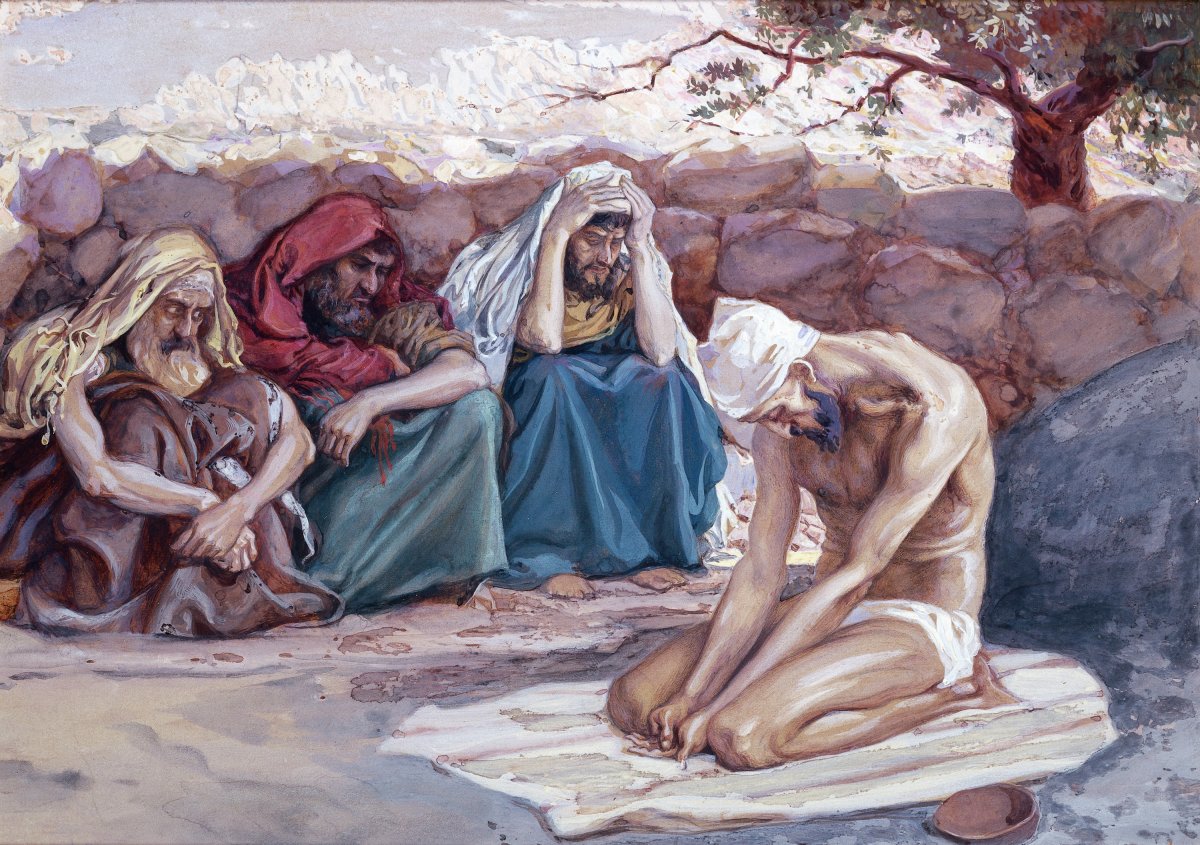Prayer II
Introduction
Having seen some words of definition on prayer, when prayer starts and some of the components of prayer, in the first article, I shall be continuing with the components of prayers in this second article, do trust that God will through this inspire your mind.

Why We Need to Praise Him (God)
Some of the reasons why we must praise God include but not limited to the followings:
(i) His Unique Nature: We should praise God because of his nature which is suigeneris. No one can be compared to him in all things on the surface of the earth. he deserves our praises for his nature. (1 Chr 29:10-13)
(ii) For His Mercy: His mercy for mankind endures forever, we should give him praises because of this. He has unflinching love for humanity. (Psa. 117)
(iii) For He is Good: His dealings with us when we think is bad, he is still good to us in that dealings. We should praise him because he is always good. (Ezr 3:10-11; Psa 135:3)
(iv) For His Enduring Love: It is for his enduring love that is why he has decoded to come to the world to save mankind from the pangs and shackles of the devil. Assuming it is humans after several attempts have failed, he won’t bother his head coming to save humanity again. (Psa 136)
(v) He is Unparalleled: Our God is unparalleled in his dealings with us. When we may have been written off like Sarah, (Gen 21:6) he would still come to our rescue to deliver us and make a show of us before those enemies. No one in the world could do that.
“Thy righteousness also, O God, is very high, who hast done great things: O God, who is like unto thee!” (Psa 71:19)
(vi) For He Reigns: He reigns in the affairs of humanity. He is the one who enthrones and dethrones. King Nebuchadnezzar fails to recognize this early but when he did, he cannot but give him praises. (Dan 4)
(vii) He is a Just Judge: He is a just judge who is no respecter of persons.
“But God is the judge: he putteth down one, and setteth up another.” (Psa 75:7)
(viii) Our Experience of Him: When we experience what we never dreamt of that would happen to us, this could propel us to praise him as it happened to the leper in Luke 17:15.
Means of Praising Him
Some of the biblical means of expressing our praises unto the Lord include:
(a) Quoting His Words: When we quote the words of praises to him as we see that the author of the book of Hebrews quoted the book of psalms.
“Saying, I will declare thy name unto my brethren, in the midst of the church will I sing praise unto thee.” (Heb 2:12 cf Psa 22:22)
(b) Blessing his Name: Nehemiah when leading the people of Israel to praise the Lord says blessed be the Lord. (Neh 9:5-6a)
(c) Singing to Him: We can sing praises to him as the ancient people do, repeating the lyrics of the word of praises unto Him. (1 Chro 16:9)
(d) Shouting His Holy Name: We can shout unto him as an expression of praising him. (Psa 98:4)
(e) Use of Instruments: The playing of musical instruments to exalt his name has been one of the practices of King David, this could also be employed by us in praising the Lord. (Psa 144:9; 150:1-5; 1 Chro 25:3)
(f) Making Melody in Our Hearts: The apostle talks of making melody in our hearts to the Lord.
“Speaking to yourselves in psalms and hymns and spiritual songs, singing and making melody in your heart to the Lord;” (Eph 5:19)
Four places can melody be found in the King James Version of the Bible, three in the Old Testament (Isa 23:16; 51:3; Amo 5:23) and one in the New Testament (Eph 5:19).
Two Hebrew words are used for melody in bible, and they are “נגן”, Romanized form of which is nâgan (pronounced as naw-gan') which means beat with a tune with fingers, play on string instruments and the second word is “זמרה”, Romanized form is zimrâh (phonetic spelling is zim-raw') which means a musical piece of song accompanied by an instrument.
The Greek word for melody however, is “ψάλλω”, Romanized form is psallō (pronounced as psal'-lo) which means to rub or touch the surface of something, twitch or twang, celebrating divinity by worshipping accompanied with odes and singing.
(g) Dancing: When the Ark of the Lord would be taking from Obed-Edom house, David danced before the ark showing appreciation to the Lord.
“Let them praise his name in the dance: let them sing praises unto him with the timbrel and harp.” (Psa 149:3)
(h) Waving Things to Show Appreciation: We know that people as a sign of praising the Lord during Jesus days, plucked palm leaves and started waving it to praise the Lord. We can also wave things to praise the Lord. It is a form of dancing in this part of the world where people started waving handkerchiefs to adore and praise the Lord. (Mat 21:1-11)
(i) Through Declarations of our Lips: We can praise him by the declarations of our lips. (Psa 51:15)
(j) Our Whole Being: We must always praise the Lord with our whole being, our whole heart without reservations whatsoever there. (Psa 9:1)
Happiness Mood For answered Prayer

(iii) Giving Thanks
King James Version’s definition of thanks is to express gratitude for a favor; to make acknowledgements to one for kindness bestowed. (2 Thes 1; 2 Sam 14:22)
Thesaurus.com defines thanks as the act of showing grateful acknowledgement for benefits or favors received, especially to God. It could also be a public celebration of acknowledging the divine favor or kindness received.
There are pockets of words used for thanks in the bible, but the commonest ones are these. In Hebrew it is “ידה”, Romanized form is yâdâh (pronounced as yaw-daw') which means hold out the hand, to revere or worship. (1 Ch 16:4)
While in Greek the word is “εὐχαριστία”, Romanized form is eucharistia (phonetic spelling is yoo-khar-is-tee'-ah) which means gratitude, grateful language to God, thankfulness as an act of worship. (I Tim. 2:1)
Biblestudytools.com says, Christian life and conduct are centered on thanksgiving, for the blessings received and those things one has been made to pass through in the world.
This act is laid down by Jesus Christ for believers as contained in his words of prayers which he taught his disciples and when he was discharging his duties, for he thanked God because he always hears him.
“At that time Jesus answered and said, I thank thee, O Father, Lord of heaven and earth, because thou hast hid these things from the wise and prudent, and hast revealed them unto babes.” (Mat 11:25)
The apostles also said that the believers should always be thankful unto God in all things and in every position. This, thanking God, apostle Paul says is the will of God for believers to do.
“In every thing give thanks: for this is the will of God in Christ Jesus concerning you.” (1 Thes 5:18)
The beasts in the revelation revealed unto John also gave thanks to him who sits on the throne (Rev 4:9), while the twenty-four elders worship the Lord (Rev 11:17) and believers assuredly would bless and thank the Lord after dispossessing the devil, the ancient serpent (Rev. 19:1-6)
As believers who have been saved by Jesus, from the accounts above we shall discover that, our prayers cannot be lacking in the words of gratitude to Jesus and his father for what he has done for us.
Where Can we Praise Him?
We can praise him in the assembly of the brethren, among the angels (or small gods), among the nations. (Psa. 57:9; 138:1) privately like Daniel did and in the public. (1 Chr 16:4)

(iv) Confessing our sins
online google says, this about the definition of confession, that it is a Judeo-Christian tradition in which a person acknowledges his or her sins in public or private. This is done to obtain divine forgiveness from God. Confessing our sins is stressed in the bible. (Ps. 32:5)
“He that covereth his sins shall not prosper: but whoso confesseth and forsaketh them shall have mercy.” (Pro 28:13)
When Jesus was talking to his disciples about two people who went to the temple to pray, he stressed the importance of this for people to receive mercy from God. (Luk 18:9-14)
Don Stewart while writing on this says, although believers have been cleansed by Jesus blood from their adamic nature and sins, but we trespassed every day, thus, when we notice that we have trespassed against his commandments, the onus is on us to ask him, God through Jesus Christ to pardon us so that our fellowship with him shall not be broken, because when our children also do what is wrong, we expect them to apologize for the errors they have committed. The errors they have committed do not stop them from being our children, but at that moment we would frown at them and would not like what they have done.
This, believers are expected to do unto God and thus the writer says, we have an advocate with the father, Jesus Christ his son.
“My little children, these things write I unto you, that ye sin not. And if any man sin, we have an advocate with the Father, Jesus Christ the righteous:” (1 Jn 2:1)
This we know is not a license to continue in sin and expects grace to abound, but what we are saying is like our children sometimes cross the boundary we can cross the boundaries of holiness and when that happens, we should confess those to him and ask for his pardon.
(v) Asking
This is the last component of prayer that I shall be talking about, and it is asking from God. We shall however, agree that all other components are interwoven with this, for confession and asking for forgives “asking” too, but this kind of asking here, has to do with tabling our requests before him, those things that are bothering our hearts, those things weighing our hearts down, like Jabez did in the bible. (1 Chro 4:9-10)
Jesus himself says,
“Ask, and it shall be given you; seek, and ye shall find; knock, and it shall be opened unto you:
“For every one that asketh receiveth; and he that seeketh findeth; and to him that knocketh it shall be opened.
“Or what man is there of you, whom if his son ask bread, will he give him a stone?
“Or if he ask a fish, will he give him a serpent?
“If ye then, being evil, know how to give good gifts unto your children, how much more shall your Father which is in heaven give good things to them that ask him?” (Mat 7:7-11)
Apostle Paul in his epistle to the Philippians says, we should stop haggling, complaining, stop keeping ourselves under the weight of needs and desires but we should table our requests to God.
“Be careful for nothing; but in every thing by prayer and supplication with thanksgiving let your requests be made known unto God.” (Php 4:6)
Poll: Praying:
Are we doing any of these at all?
God desires of us to keep praying, to be talking to him because we are his children as father loves to talk to his children, as father loves to hear his children speak to him so does God wants to always hear us speak to him. (Neh. 1:4-11; Dan. 9:3-19; Phil. 4:6)
In the next article, I shall be talking on those who should pray and some of the reasons why we should pray.
© 2018 OLUSEGUN








